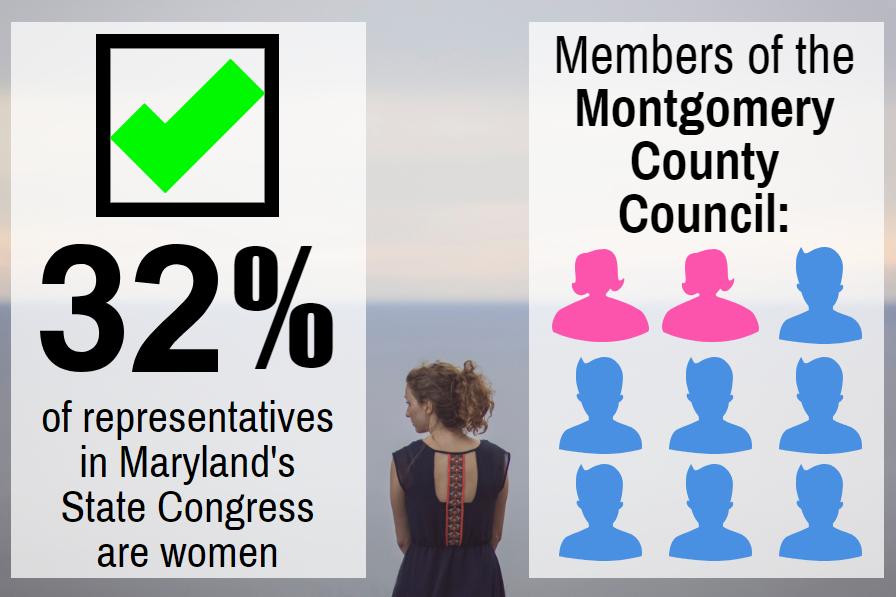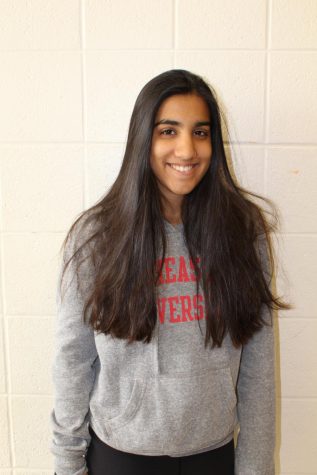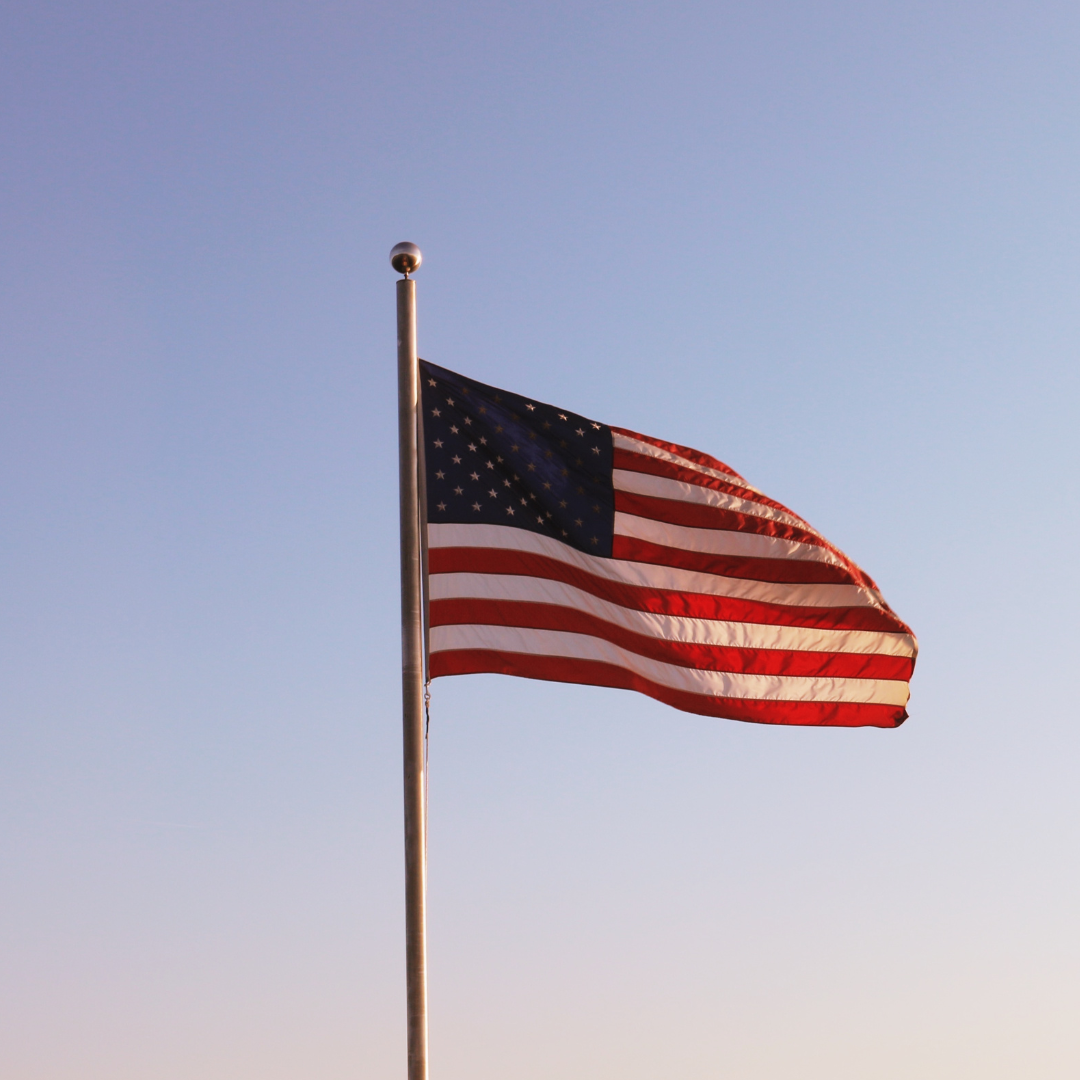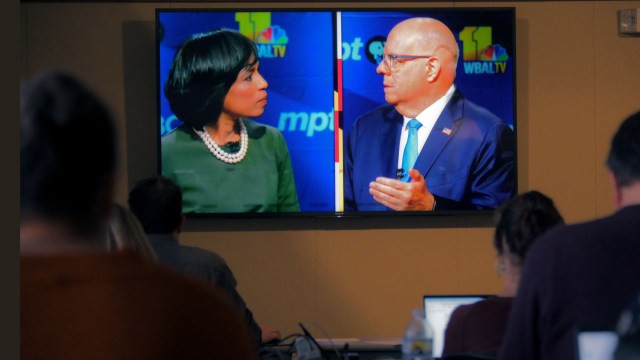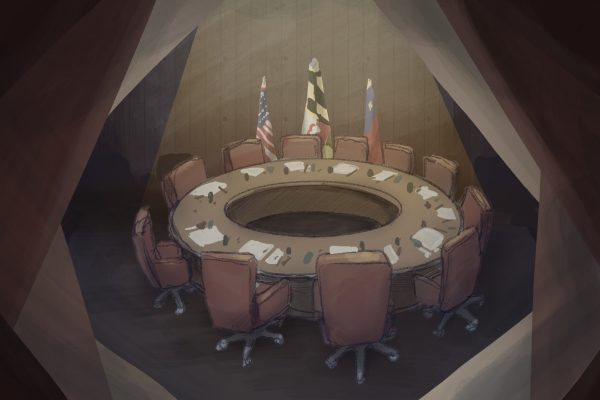Number of women in local government increases; follows national trend
Graphic by Selina Ding.
November 5, 2018
Voters talked about her opponents’ strong political philosophies. Then they talked about her red dress. In the campaign for District 16 state delegate, Ariana Kelly faced a challenge that her male opponents didn’t have to endure: sexism.
“I’ve had a lot of voters ask me, ‘if you’re going to be serving an office, who’s going to be taking care of your children?’” Kelly said. “I know that they don’t ask my male colleagues that question.”
In the 2018 midterms, more women than ever are running for office in both national and local government. A record-breaking 256 women will be on the ballot for the Senate or House of Representatives November 6, according to CNN. For years, Maryland’s District 16 delegation has consisted of two men and one women, state delegate Marc Korman said. But now two out of three District 16 state delegates will likely be female, based off statistics from the primaries. In addition, the Montgomery County Board of Education will be all-female for the first time in history——guaranteed because all of the candidates are female.
Sophomore Grace McGuire is the president of Girl Up, a Whitman club dedicated to defending gender equality. McGuire attributes the rise of female politicians to the #MeToo movement and Kavanaugh hearings, saying women now feel that their voices need to be heard. A similar increase followed the 1991 hearings of then-justice nominee Clarence Thomas, regarding allegations of Thomas sexually assaulting Anita Hill. The following year was called “the year of the woman” because a record-breaking 251 women ran for office, according to Time.
Sophomore Holly Adams hopes the increased number of women holding positions of power will inspire new generations of female leaders.
“I think it’s really important for girls to have role models in government,” Adams said. “If girls see all their representatives being male, they won’t strive to be in that position because they don’t have anyone to look up to.”
Two of the largest obstacles female politicians face are the stigma and double standard that accompany being a woman in power. Women in leadership positions are expected to fit typical female gender roles and at the same time seem assertive enough to lead others, the New York Times reported.
“You have to be very careful because a lot of people are not comfortable with women having power,” said Kelly. “It makes them feel threatened.”
This year’s Student Member of the Board Ananya Tadikonda says she sometimes recognizes a double standard but generally has found county students to be accepting of both genders. This past year was the first time in 15 years that the two SMOB finalists were female.
“I could tell that people had different critiques of my leadership style and approach that they wouldn’t have had for my male counterparts who did things in a similar way,” Tadikonda said. “But our students are welcoming, for the most part, and they’re very accepting to the diverse perspectives our county holds.”
In an informal Black & White survey of 18 students, when asked to describe an ideal congressional candidate, seven out of nine girls said they pictured a woman, while only one out of nine boys said the same.
Diversifying representation allows for more focus on women-centered policies, such as reproductive health-centered policies, Kelly said.
Likewise, Tadikonda said she hopes to focus more on issues like dress codes, gender equity and consent education. Fellow Board member Jeanette Dixon thinks working with an all female group will improve communication and collaboration, Dixon said.
Although women are gaining representation in local government, they are still a minority in politics. While the Maryland House of Delegates is becoming more female, the County Council is still heavily male. Kelly said she believes this is because working for the Maryland government is a more difficult task, while working for the county is more prestigious and lucrative.
“Nobody wants to talk about that because we want to spend all this time celebrating that women are running and everything,” Kelly said. “It’s so much better than it was eight years ago when I first ran for office. I’m thrilled, but there’s obviously so much more work to do.”
Even though women still don’t have equal representation, McGuire said she thinks increased representation is a start.
“Our society has just progressed a lot and we’re much more equal now than we’ve been in the past 30 years,” McGuire said. “As we’ve progressed socially, more women feel that they can come out and talk about their experiences and what they’d like to do for our country.”



